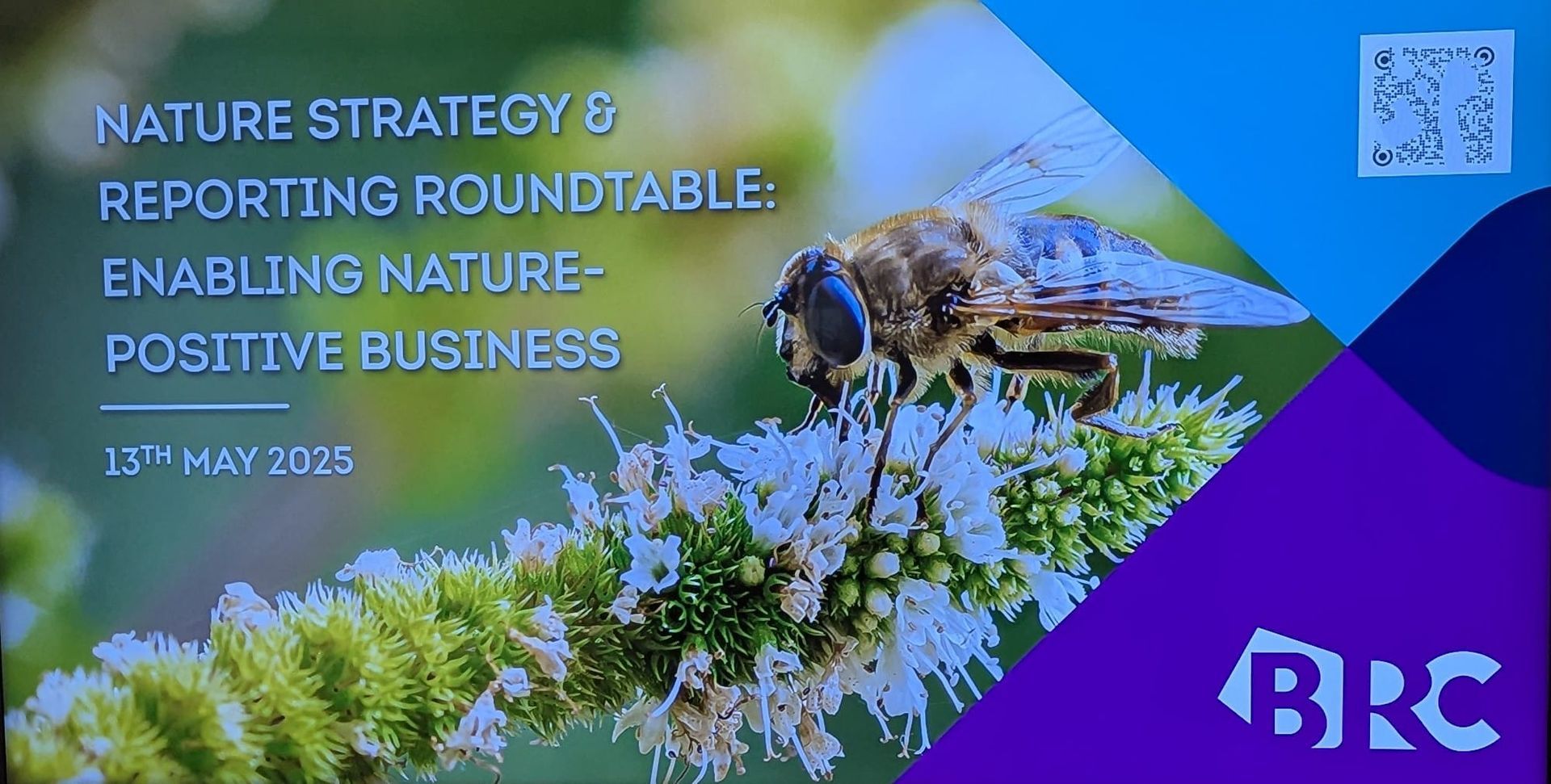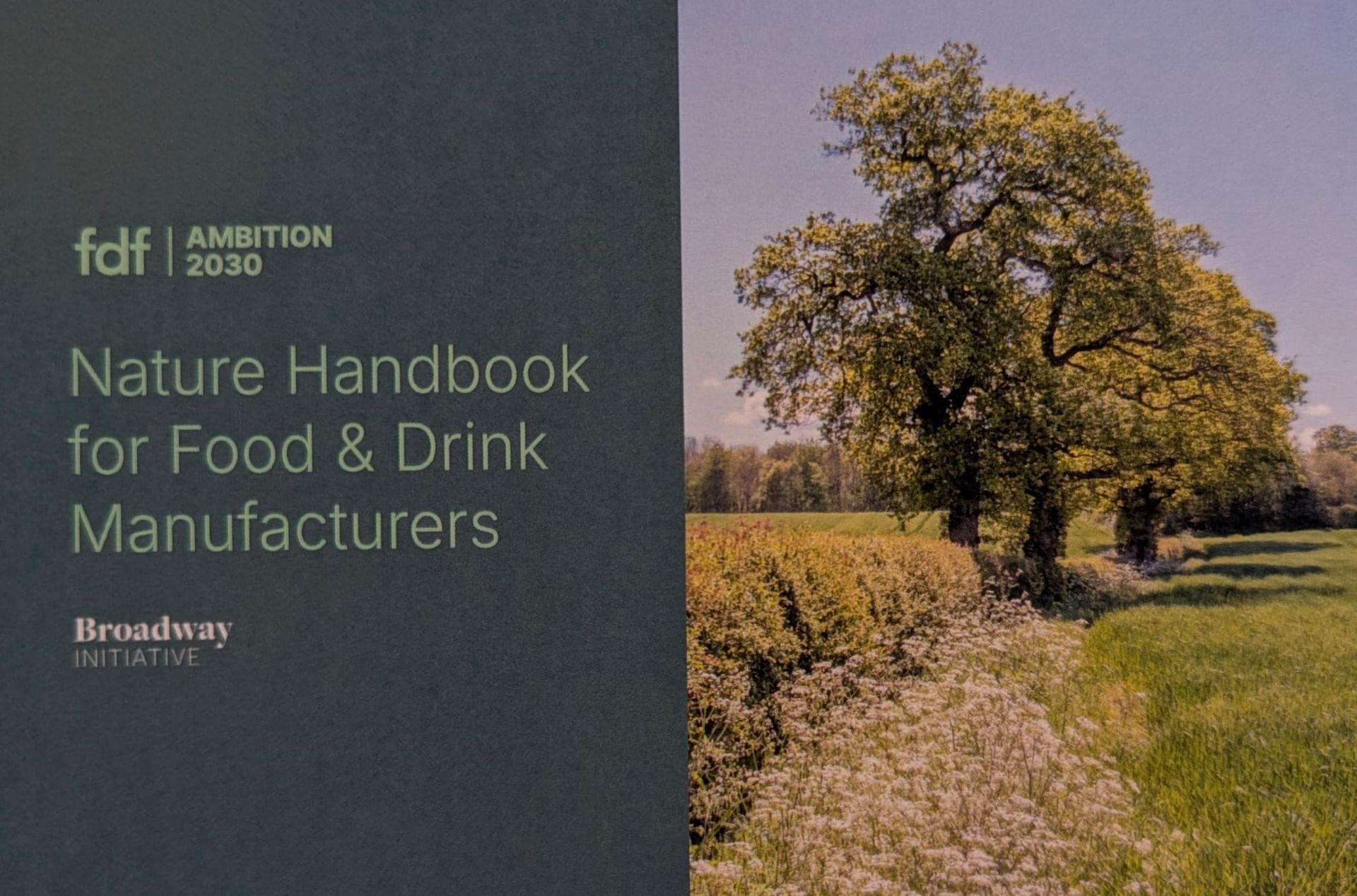Driving Retail Action on Nature: Broadway speak at BRC Roundtable
The Broadway Initiative joins up business action and government policy making to achieve the UK’s environmental targets. Earlier this week, we spoke to a British Retail Consortium (BRC) roundtable, explaining the opportunities for business interaction with key areas of Defra policy making that may on first glance look far removed from retail, yet are in fact vital for both economic growth and nature positivity.

The roundtable concluded the BRC’s Plan for Nature 24/25, bringing businesses together to discuss barriers to retailer action on the environment and how government policy might help overcome those challenges.
Broadway’s Nature Director Liam Stokes and Chief Operations Officer Matthew Farrow were invited to provide an update on three critical work streams, and to source vital feedback from retailers at the sharp end of business engagement with nature.
We laid out our next steps for trade association participation in The Environmental Improvement Plan (EIP) review and refresh, the development of the Land Use Framework and the Cunliffe review of the water sector regulation. Before we spoke however, proceedings were opened with a powerful framing by RSK’s Christophe Lavialle.
Too often, the technical, practical nature of these discussions can make the real world impact of nature policy feel distant and remote. Christophe reminded the room of the crisis the world is facing, the existential challenge of living and doing business on a finite planet populated by invaluable wildlife in catastrophic decline. Early findings from the BRC’s own surveys showed there is still a long way to go, with many businesses of all sizes still right at the beginning of their journey to nature positivity.
These findings reflected our own experiences and the conversations we have been undertaking with food and drink’s manufacturers as we put together the first sectoral Nature Positive Handbook with our partners at the Food and Drink Federation. Businesses of a certain size understand net zero, and smaller businesses are being helped along the way by the UK Business Climate Hub, but nature is the next frontier. Broadway’s convening and bridge building is central to meeting that challenge.
We outlined the relevance of the EIP to retailers, explaining our efforts to map business sector impact onto the plan’s goals and objectives and highlighting the importance of building a ground-up coalition of the willing to co-create the mechanisms to make those targets achievable. Two of those mechanisms, the spatial frameworks found in the Land Use Framework and potentially the Cunliffe Review and the funding structures we are proposing through our Nature Markets Dialogue, we addressed in detail.
The discussion was vigorous and energetic, with conspicuous themes emerging. Alongside fellow speakers from RSK and Helen Edmundson from Defra, we heard retailers temper their evident enthusiasm for action with a desire for coherent frameworks in which to act. Business wants nature and climate action to break free of their silos, with holistic nature plans clearly stating what retailers are required to demonstrate in their environmental interventions. We were left in no doubt that harmonising strategies and policies, spatially and governmentally, remains a top priority.
The session was optimistic. There is appetite for action and engagement, and a desire to learn the lessons of climate action and carbon markets. There is clearly work to do both within businesses and in building the frameworks that retailers will need in order to maximise their nature positivity, but the collaborative energy at the BRC’s final Plan for Nature 24/25 roundtable suggests we are very much on the journey.



